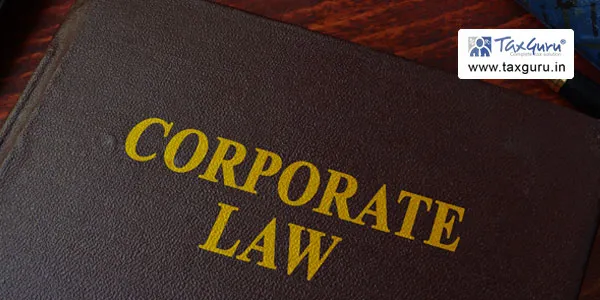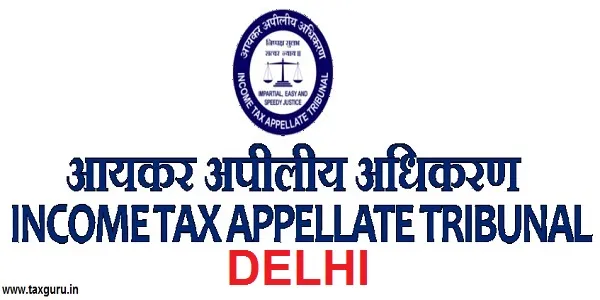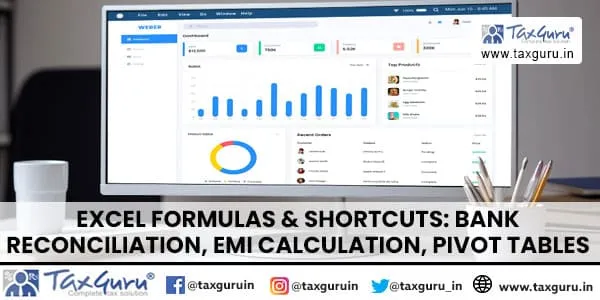Case Law Details
IN THE ITAT MUMBAI BENCH ‘B’
Income-tax Officer, 17(3)(1), Mumbai
v/s.
Bombay Electrical Laundry
IT Appeal No. 4167 (Mum.) of 2008
[Assessment year 2006-07]
Date of Pronouncement – June 13, 2012
ORDER
Vivek Varma, Judicial Member
The appeal filed by the department arises from the order of the CIT(A) XXIII, Mumbai dated 25-03-2009.
2. The department has raised the following grounds of appeal:
1. On the facts and in the circumstances of the case and in law the Ld.CIT(A) erred in holding that consideration of Rs. 2.5 crores on surrender of tenancy rights belongs to the partners and not to the assessee firm inspite of the fact that the assessee firm was occupying the premises and paying rent.
2. On the facts and in the circumstances of the case and in law, the ld.C1T(A) erred in deleting the addition made by the A.O., of Rs. 2,50,00,000/- as long term capital gain on account of compensation received from M/s. Veera &. Gala Developers on surrender of tenancy rights.
3. The solitary issue in these grounds pertains to whether the tenancy rights vested with the firm or with the partners.
4. The facts of the case are that in the year under consideration an amount of Rs. 2.50 crores was received from M/s Veera Gala Developers (VGD) towards compensation for surrender of the tenancy rights. During the course of assessment proceedings, the AO noticed that the firm was dissolved vide dissolution Deed dated 22-12-2005. Prior to this date, the assessee was carrying on its business from a rental premises since coming into being from inside Rajkamal Studios, Dr. S. S. Rao Road, Parel, Mumbai 400012 and was paying a rent of Rs. 3,375/- per annum.
5. The AO was intimated by his colleague that on 12-02-2007 a survey operation was conducted on VGD, and an agreement of surrender of tenancy by the assessee, i.e. M/s Bombay Electric Laundry (BEL) in favour of VGD was recovered, wherein, they have agreed to pay Rs. 2.50 crores to the partners of BEL in their profit sharing ratio. The AO enquired, since the surrender of tenancy was by the firm and its accounts did not show the receipt of the surrendered amount, the AO asked as to why this amount of Rs. 2.50 crores should not be brought to tax in its hands. Vide letters dated 05-06-2007, 18-06-2007, NIL (submitted on 11-07-2007) explanations were furnished, wherein it was explained that Mr. V. Shantaram was the original owner of the property which was later on taken over by M/s Rajkamal Kalamandir Pvt. Ltd. where BEL was being run as business by one Mr. Yusuf Ismail, who migrated to Pakistan at the time of partition. In 1947, Mr. Assandas S. Rawtani and Mrs. Vishnibai S. Rawtani migrated from Sind, Pakistan to Bombay, and they were allotted the premises and business in the name and style of Bombay Electric Laundry along with its stock, machinery and tenancy rights by the Government of India through the Office of Deputy Custodian of Evacuee Property by the office of Assistant Settlement Commissioner as per deed of conveyance dated 27-07-1957 and vide letter dated 21-12-1959, Deputy Custodian of Evacuee Property instructed the owner, Mr. V. Shantaram to treat Mr. Assandas S. Rawtani and Mrs. Vishnibai S. Rawtani as his direct tenants. Since then, Mr. Assandas S. Rawtani and Mrs. Vishnibai S. had been carrying on the business in the name of Bombay Electric Laundry from the said premises. Later on, after their deaths, the legal heirs of Rawtanis had been carrying on the business from the premises.
6. In the assessment proceedings, the assessee submitted that since 04-04-1990, the business was being carried on between Mr. Sugnomal Rawtnani, Mrs. Mira Rawtnani, Mrs. Bharti Rawtani, Mr. Kamal Rawtani and Mr. Kumar Rawtani, and as per clause 13 of the deed of partnership, the tenancy rights in the said property shall belong to them in “individual capacity“.
7. The partners on receipt of their shares in surrender of tenancy rights, invested the same in NABARD Bonds. As an abandoned caution, the assessee took on alternative plea before the AO, that if in case, the facts does not impress the AO then the benefits claimed by the individuals u/s 54EC be extended to the firm.
8. On considering the above arguments, the AO, rejected the claim made by the assessee on both the grounds, wherein the AO held that it was the firm, M/s Bombay Electric Laundry who was the tenant and not the five partners, who were claiming to be having exclusive tenancy rights, he therefore held that the amount of Rs. 2.50 crores received as compensation against the surrender of tenancy rights was the income of the firm i.e. M/s Bombay Electric Laundry and not its partners. He rejected the assessee’s alternative plea also by holding that the Act recgonises firm and its partners as distinct and according to section 2(31) of the Act, firm is a separate entity. The AO, therefore, brought to tax Rs. 2.50 crores being receipts of the firm, in the hands of the firm.
9. Aggrieved, the assessee approached the CIT(A), who on going through the entire facts and various deeds of partnerships entered into by the heirs of Mr. Assandas S. Rawtani and Mrs. Vishnibai S. Rawtani, from time to time, arrived at the conclusion that Mr. Assandas Shamdas Rawtani and Mrs. Vishnibai S. Rawtani got the tenancy rights from the Government of India in their individual capacity, and after their death their legal heirs stepped into the tenancy rights in their individual capacity. The CIT(A) also came to the conclusion that none of the partners in the appellant firm had ever introduced his/her share in the tenancy rights of the said property in his capital and that the tenancy rights in the said property belonged to the partners of the firm in their individual capacity and appellant had no right over the same. The CIT(A) further held that since the rent was paid by the firm, it was its normal allowable business expense. The CIT(A) further held that all the partners in the appellant firm have shown their respective share received directly by them from VGD in their respective returns of income, taking the same amount in the hands of the appellant shall amount to double taxation. He, therefore, deleted the addition and allowed the appeal on this issue.
10. Aggrieved by this order of the CIT(A), the department is in appeal before the ITAT.
11. Before us, the DR took us through the facts narrated in the assessment order and cited by the CIT(A) in the impugned order. The DR impressed upon the fact that it was the firm which should have been the actual beneficiary in the tripartite agreement entered into by the owner, M/s Rajkamal Kalamandir Private Ltd., and M/s Bombay Electric Laundery and M/s Veera & Gala Developers on 18-11-2005. He submits that it was the firm who entered the agreement and not the partners. The DR pointed out that ever since 20-09-1960, the firm BEL had been in existence and there had been changes in the constitution of the firm from time to time and the last time the firm underwent a change in the constitution was on 04-04-1990 when the existing partners stepped in, i.e. Meera L. Rawtani, Bharatibai R. Rawtani, Sugnomal A. Rawtani, Kumar Ramchand and Kamal Ramchand. The DR also took us through the Partnership Deeds which came into existence from time to time and pointed out that in the first partnership deed dated 22-09-1960, clause 5 read. “the assets and liabilities taken over by the partnership firm shall be as per schedule attached herewith”. He pointed out that in the deed dated 13-07-1964, clause 5 read, “It is hereby agreed between the parties that the parties of the first and second part shall make available to the new partnership the premises inside Rajkamal Studios Govt. Gate Road, Parel, Bombay, but tenancy in respect thereof shall remain with them”. The DR then went on to read that “tenancy in respect thereof shall remain with partners”. The DR in support of his arguments referred to various case laws as under:
(a) Sri Hari Lodge v. CIT [1988] 172 ITR 386 (Ker.), wherein the Hon’ble Kerala High Court held as under:
One of the partners sold his share in the assets of the firm on 8th April, 1974 to the purchaser – The three remaining partners executed a release deed in favour of the purchaser’ on 17th April. 1974 – deed of dissolution executed on 24th June,1974 wherein it was stated that the firm was dissolved w.e.f. 12th April, 1974 – Title to the property passes to the purchaser only after execution of release deed – bate of release deed preceded dote of execution of dissolution deed – Capital gains arising from this transaction is assessable only in the hands of the firm “Where the property belonging to a firm is transferred by the partners before the execution of dissolution deed and wherein the release deed was effected in favour of the purchaser before the date of execution of dissolution deed, the firm only is liable to pay tax on capital gains on such transaction and not the partners in their individual capacity”.
(b) ITO v. Ch. Atchaiah [1996] 218 ITR 239 wherein the Hon’ble Supreme Court held as under:
4. In our opinion, the contention urged by Dr. Gauri Shanker merits acceptance. We are of the opinion under the present Act, the ITO has no option like the one he had under the 1922 Act. He can, and he must tax the right person who is liable to be taxed, according to law, with respect to a particular income. The expression “wrong person” is obviously used as the opposite of the expression “right person”. Merely because a wrong person is taxed with respect to a particular income, the AO is not precluded from taxing the right person with respect to that income. This is so irrespective of the fact which course is more beneficial to the Revenue. In our opinion, the language of the relevant provisions of the present Act is quite clear and unambiguous.Sec.183 show where the Parliament intended to provide an option, it provided so expressly. Where a person is wrongfully, he is no doubt entitled to be relieved of it in accordance with law but that is a different n altogether. The person lawfully liable to be taxed can claim no immunity because the AO (ITO) has the said income in the hands of another person contrary to law. We may proceed to elaborate”.
The DR also referred to the case of K.I. Viswambharan & Bros v. CIT [1973] 91 ITR 588, wherein the Hon’ble Kerala High Court held,
The question is whether, for the purposes of his individual assessment, the partner, S can claim any deduction under s. 54(i). The relief granted by s. 54(i) has relevancy only in the matter of computing capital gains for the purposes of taxation. In other words, the person claiming the benefit must have realised profit or gain by the transfer of a capital asset. In this case, the capital gain accrued to the firm and, on such accrual, it became part of the firm’s total income just like any other receipt that satisfied the attributes of “income” as understood in law. What the partner S was entitled to get at the end of the year was his share in the divisible profits of the firm, and not a share in each category of income derived by the firm. It cannot, therefore, be held that S realised capital gains on the sale of a building used for his residence so as to attract s. 54(i); and the claim him for deduction of Rs. 20,000 in computing his taxable income for the relevant year has only to be repelled. In a case where a partner of a firm purchases a residential property out of the share in the profits firm which earned capital gains on sale of a house property belonging to the firm, the partner would entitled to a deduction under s. 54(i).
Capital gains – Chargeability – Assessee-firm purchasing a house property for residential use b partners and subsequently selling the same – A firm is treated distinct from its owners for purposes of IT Act – Firm can own a property – Profits or gains arising from the sale of such property is chargeable to tax as capital gains in the hands of the firm
The DR also cited the case of Addanki Narayanappa v. Bhaskara Krishanappa AIR 1966 SC 1300, wherein the Hon’ble Supreme Court held,
From a perusal of these provisions it would be abundantly clear that whatever may be the character of the property which is brought in by the partners when the partnership is formed or which may be acquired in the course of the business of the partnership it becomes the property of the firm and what a partner Is entitled to is his share of profits, if any, accruing, to the partnership from the realisation of this property, and upon dissolution of the partnership to a share in the money representing the value of the property. No doubt a firm has no legal existence, the partnership property will vest in all the partners and in that sense every partner has an interest in the property of the partnership. During the subsistence of the partnership, however, no partner can deal with any portion of the property as his own. Nor can he assign his it is right is to obtain such profits, If any, as fall to his share from time to time and upon the dissolution of the firm to a share in the assets of the firm which remain after satisfying the liabilities set out In clause (a) and sub-clauses (i) (ii) and (iii) of cause (b) of Section 48″.
The DR also referred to the following cases:
i. CIT v. Dr. D.A. Irani [1998] 234 ITR 850
ii. CIT v. Jayantilal Ramanlal & Co. [1982] 8 Taxman 188 (Bom.)
iii. CIT v. R. Rangaswamy Naidu [1997] 224 ITR 113
iv. Sarvamangala Properties Ltd. v. CIT [1973] 90 ITR 267 (Cal.)
v. K.I. Viswambharan & Bros. (supra)
vi. Pearl Woolen Mills v. CIT [1980] 123 ITR 658
vii. R. Rangaswamy Naidu (supra).
The DR also referred to the case of Bhavarlal Labhchand Shah v. Kanaiyalal Nathalal Intawala 1986 AIR 600 (SC), wherein the Hon’ble Supreme Court has held,
The respondent who is the landlord of a building situated at Baroda had leased it out in favour of one Bai Maniben Dhirajlal Shah on a monthly rent of Rs. 22 for carrying on business in the said shop premises. Before her death she bequeathed her tenancy right in the said shop by a will in favour of the petitioner in the special leave petition. After her death the will was probated. Bai Maniben was not a contractual tenant but her right to tenancy was only a right protected by the Bombay Rent Control Act.
The respondent instituted a suit in Bent Suit No. 47 of 1975 on the file of the Small Causes Court at Baroda for recovering vacant possession of the said building contending that the petitioner was not a tenant and could not continue any longer in it. By way of defense the petitioner set up the will and asserted that he had become a tenant thereunder and could not be evicted from the premises. The Small Causes Court agreeing with the petitioner that had acquired the tenancy right under the will dismissed the suit The Extra Assistant Judge, Baroda allowed the landlord’s appeal holding that the tenancy right could not have been bequeathed under the will, in favour of a third party like the petitioner who was not a member of the tenant’s family doing business with the tenancy before her death. Consequently the petitioner was directed to deliver possession of the premises to the landlord. The petitioner preferred Civil Revision Application No. 1500 of 2 1978 in the High Court of Gujarat against the said judgment of the Extra Assistant Judge. The Learned Single Judge of the High Court who first heard the application felt that Bai Marniben who Was entitled to the protection of the Act even after the determination of the lease had an interest in the premises which could be bequeathed by her in favour of any person of her choice under a will irrespective of the fact whether the legatee was a member of her family carrying on business, trade or storage in the said premises along with her at the time of her death. He however, referred the matter to a larger.. Bench, since substantial issues of law had arisen for consideration. Ultimately, the Full Bench by its judgment dated September 24, 1985 held that the petitioner could not acquire. Under the will any interest in the tenancy in question and that the decision of the Extra Assistant Judge, Baroda did not call for any interference. And later on, the Hon’ble Court observed, “Ordinarily it is only an interest that can be inherited that can be bequeathed. But the heritability of a tenancy after the determination of the lease, which is protected 7 by the Act is restricted In the case of residential premises only to the members of the tenant’s family mentioned in sub- clause (i) of clause (c) of section 5(11) of the Act and in the case of premises let for business, trade or usage to members belonging to the family of the tenant carrying on business, trade or storage with the tenant as may continue after his death to carry on the business, trade or storage as the case may be in the said premises and as may be decided in default of the agreement by the Court as provided in sub-clause (i) thereof. When the statute has imposed such a restriction, it is not possible to say that the tenant can bequeath the right to such tenancy in the case of premises let for business, trade or storage in favour of a person, not possessing the qualification referred to in section 5(11)(c)(ii) of the Act”.
The DR, therefore, concluded his arguments and prayed that the consideration received by the partners, actually belonged to the firm as it was the firm which was occupying the premises and paying the rent.
12. The Authorised Representative appearing on behalf of the appellant firm relied on the decision of the CIT(A) and also prayed that as an abundant caution, the appellant has moved an application u/r 27 of the ITAT Rules, if in case, the ITAT decides to take a contrary view to the view of the CIT(A). On enquiry from the Bench, as to what actually was acquired by M/s Assandas S. Rawtnani and Mrs. Vishnibai S. Rawtnani, the A.R. pointed out that it was only the tenancy that was acquired and not the ownership vide the Deed of Conveyance executed on 27-07-1957. The A.R. pointed out that vide deed of conveyance on 27-07-1957, the rights, titles and interests of Shri Yusuf Ismail in the business concern with stock-in-trade, machinery etc. and tenancy rights formerly known as Mohamed Issac Ibrahim Laundry known as Bombay Electric Laundry were sold to Mr. Assandas Shamndas Rawtani. He further pointed out that vide letter dated 21.12.1959, Managing Officer, Office of Deputy Custodian of Evanesce Property informed/directed Mr. V. Shantaram, owner of the property where M/s. Bombay Electric laundry was running that, “You, are, therefore, requested to treat the purchases as your direct tenants. Further, you are, requested to recover the rent direct from the tenants and issue rent receipts in their names. Copy forwarded to Shri Assandas S. Rawtani and Smt. Uishnibai S. Rawtani”. The AR submitted that the property in question was given as tenancy to the two migrants into Bombay from Sind, Pakistan.
13. The AR on these facts submitted that since the business has been in the name of Bombay Electric Laundry, however the conveyance and the tenancy was executed and awarded to the two individuals. The AR further pleaded that in the various partnership deeds, consistently it was mentioned that the tenancy remained with the individual persons and even in the last partnership deed dated 04.04.1990 in clause 13, the initial is, “That all the rights over the trade name, goodwill, license and permits shall belong to the partners in proportion to the profit sharing ratio as per clause (7) including the tenancy/ownership rights of the business premises viz. Messer’s Bombay Electric Laundries, inside Rajkamal Studios, Dr. S.S. Roa Road, Parel, Bombay-400012”. The AR, therefore, concluded that the order of CIT(A) in line with the facts of the case.
14. We have heard the arguments from either side and perused the material on record and case laws cited by the DR to support his contentions on alternative grounds, i.e. the online receipts should be taxed in the hands of the assessee firm and the alternative plea of the assessee, that in case the CIT(A)’s order is not accepted then the benefits of section 54EC cannot be shifted in the hands of the firm.
15. The DR has relied upon the judgments as cited in the preceding paras.
16. But in all the judgments the crux beneath the issues discussed is that if there was a partnership firm, then under all circumstances, it is the firm which shall be taxed and not the partners, as not only Partnership is a separate legislation but in the Income Tax Act, it is a distinct entity in section 2(23) and 2(31)(iv). So far as these reasons are concerned, the case laws cited by the DR have all the bearing, but the fact of the matter is that none of the case laws cited have the peculiar circumstance as that of the case at hand, because in the instant case the issue before us is whether tenancy rights rested with the firm or the individual persons. Since this particular issue has not been dealt with in any of the case laws as cited by the DR, they are distinguishable on facts and hence cannot be of any assistance either to the DR or to us.
17. Coming to the pure facts of the case, we have to see, as to who is the tenant in the instant case, i.e. the assessee firm or the five individuals who are the present partners in the firm.
18. We have gone into the history and we find that the owner of the entire premises, Mr. V. Shantaram, had given on rent a portion of the premises to Mr. Yusuf Ismail, who was conducting his business in the name and style of M/s Bombay Electric Laundry, well before the partition took place in 1947. On the formation of Pakistan Mr. Yusuf Ismail migrated to Pakistan leaving behind the premises and business thereon. This premises and business was taken over by the Custodian of Evacuee Properties, who in 1957 sold the rights, titles and interests of Mr. Yusuf Ismail in the business concern and stock-in-trade and tenancy rights formerly known as Muhamed Issac Ibrahim Laundry known as Bombay Electric Laundry, to Mr. Assandas Shamandas Rawtani vide Conveyance Deed dated 27-07-1957. On 21-12-1959, Deputy Custodian of Evacuee Properties wrote to the owner Mr. V. Shantaram to treat the purchasers (i.e. Mr. Assandas S. Rawtani and Mrs. Vishnibai S. Rawtani) as his direct tenants. Nowhere, do we see that M/s Bombay Electric Laundry is considered as the tenant, even if we go into the history.
19. Coming to the last Partnership Deed dated 04-04-1990, here also, in clause 13, we find that it is, “That all rights over trade name, goodwill license and permits shall belong to the partners……”.
20. Looking and examining all the recitals, we find that it is the persons, legal heirs of Mrs. Assandas S. Rawtani and Mrs. Vishnibai S. Rawtani, who have continued to hold the tenancy rights and have used the name of the business only for the sake of convenience, which had been continuance from the pre partition days. Moreover, none of the partners, at no point of time have ever introduced his/her share in the tenancy as capital in the accounts of the firm. Lastly, according to Bombay Rents, Hotel and Lodging House Rates Control Act, 1947, section 11, defines tenant, wherein it says “tenant means any person by whom or on whose account rent is payable for any premises includes sub tenants and other persons or have derived title under a tenant before the 1st day of February 1973”. Section 14 (aa) says “any person to whom interest in premises has been assigned a transferred as permitted or deemed to be permitted under section 15”. And Explanation to section 18 says “The provisions of this clause for transmission of tenancy shall not be restricted to the death of the original tenant, but shall apply, and shall be deemed always to have applied, even on death of any subsequent tenant, who becomes tenant under these provisions on the death of last preceding tenant”. To our mind, the “tenancy of the premises” was always held by the individual and later on individuals only, and never by the firm, as held by the AO. Even the relevant provisions of Bombay Rent, Hotels and Lodging House Rates Control Act, 1947, comes to the rescue of the individuals, wherein, the statute itself defines “tenant means any person by whom or on whose account rent is payable for any premises includes sub tenants and other persons or have derived title under a tenant before the 1st day of February 1973”. Section 14 (aa) says “any person to whom interest in premises has been assigned a transferred as permitted or deemed to be permitted under section 15”. This only means that the firm was never the tenant.
The individuals were, thus correct, who had not only taken the compensation for surrender of tenancy rights and deposited the same in NABARD Bonds.
21. In the light of the above discussion, we do not intend to disturb the findings of the CIT(A), wherein he has deleted the addition made by the AO at Rs. 2,50,00,000/-. We sustain the order of the CIT(A).
22. Since we have rejected the department’s appeal we refrain ourselves from adjudicating on application under Rule 27 of the ITAT Rules, as filed by the assessee.
22.1 In the result, the appeal filed by the department is dismissed and application filed by the assessee under Rule 27 becomes infructuous, hence it is dismissed.



















